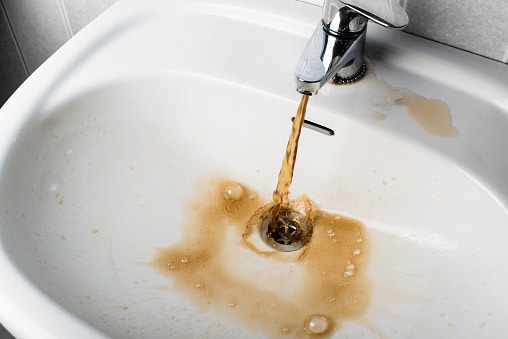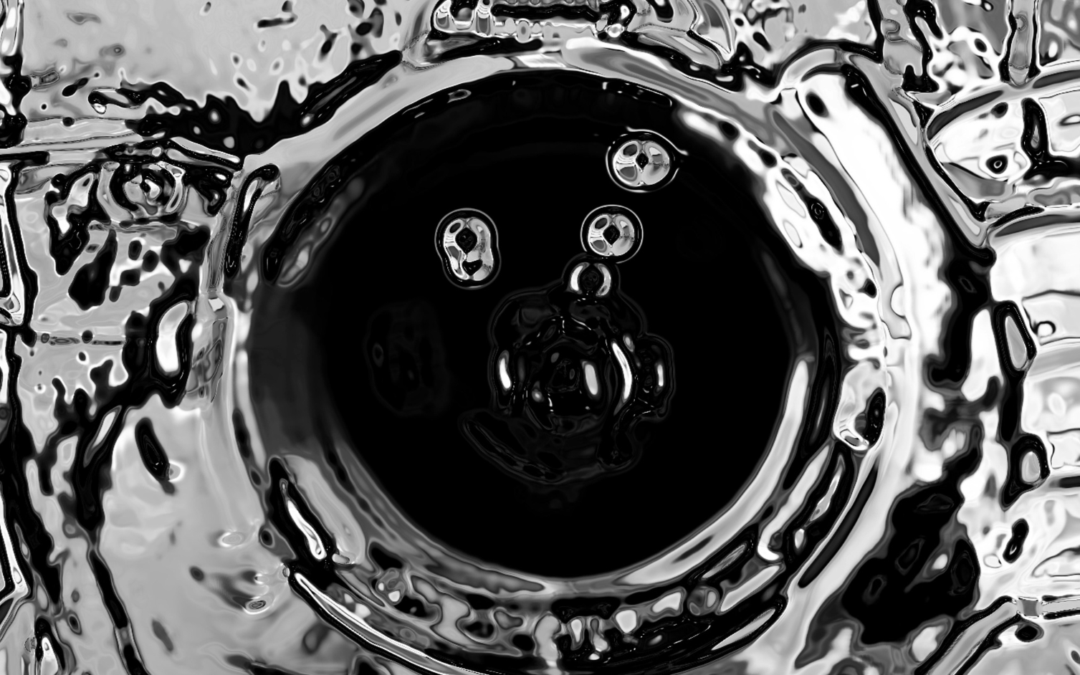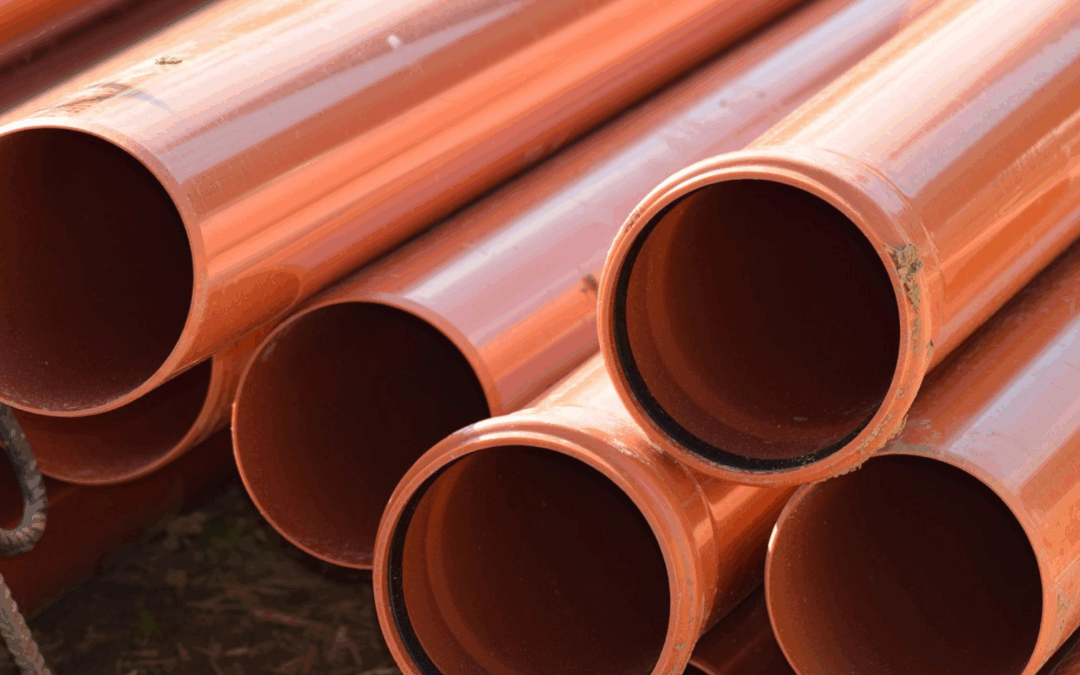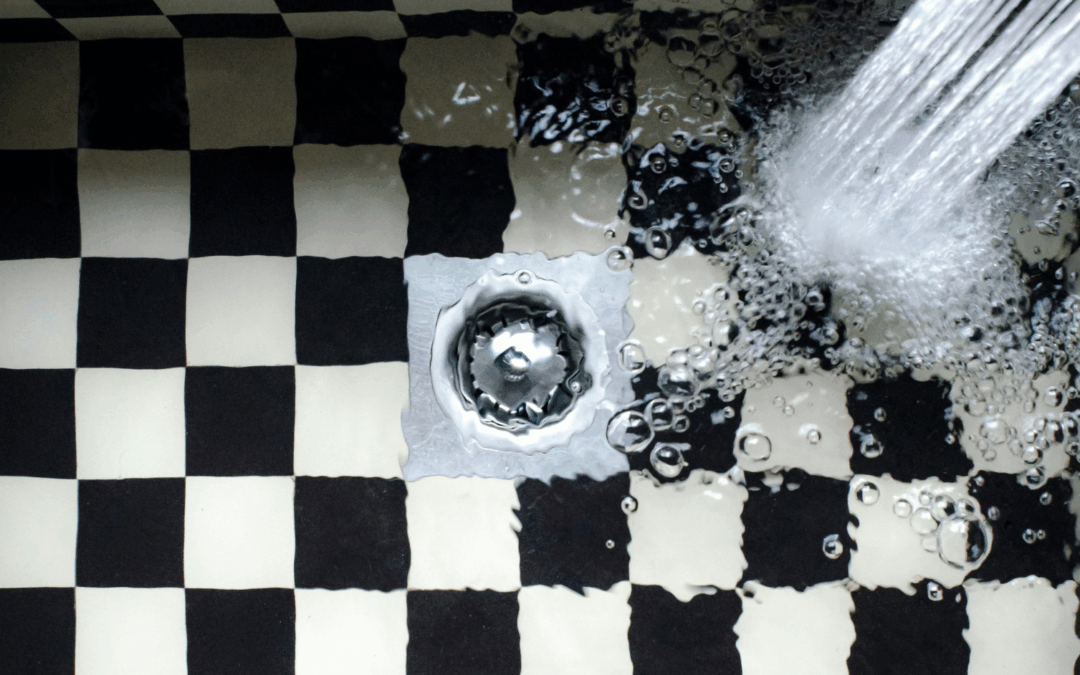Water is essential for our survival, but what happens when the clear and pristine water we usually use for drinking and other household purposes suddenly turns brown? Brown water is a problem that can occur in any home, and it’s crucial to know what causes it, what effects it has, and how to prevent it from happening.
We will discuss everything you need to know about brown water and for each topic, we will be diving deeper into everything a little later in the blog!
What Causes Brown Water?
One of the most common causes of brown water is the presence of sediment or rust in your water pipes. Over time, sediment and rust can accumulate in your pipes, causing the water to turn brown. This is more likely to happen if your home has older pipes or if construction work is being done nearby.
Schedule Service Online
Get a free estimate so you know what you're signing up for
"*" indicates required fields
For Emergency Services Call: 410-255-9300
Brown water can also be caused by a disruption in the water supply system. This can occur if there’s a break in the main water line or if there’s water maintenance work being done in your area. When the water supply is disrupted, sediment and other debris may enter the water system, which can cause your water to turn brown.
Another cause of brown water is algae blooms in nearby bodies of water. Algae blooms can cause the water in rivers, lakes, and reservoirs to turn brown or green. When this happens, the water treatment plant may have difficulty removing all of the algae, which can result in brown water flowing into your home.
Effects of Brown Water
Brown water can have several effects on your health and your home. The most obvious effect is that it is unattractive and can stain clothing and other fabrics. It can also leave stains in your sinks, toilets, and other fixtures.
In addition to being unsightly, brown water can also have negative health effects. If the brown water is caused by rust and sediment, it can contain harmful metals that can cause health problems if ingested. Brown water can also be a breeding ground for bacteria and other pathogens, which can cause illnesses like E. coli and gastroenteritis.
Preventing Brown Water
Preventing brown water requires a few simple steps. First, make sure that your home’s pipes are regularly inspected and maintained. If you have older pipes, consider having them replaced to prevent sediment and rust from building up.
Another way to prevent brown water is to install a water filtration system. A filtration system can remove sediment, rust, and other contaminants from your water supply, ensuring that it remains clear and safe to drink.
If there’s construction work happening nearby, it’s a good idea to store some drinking water in case the water supply is disrupted. It’s also essential to avoid washing clothes or dishes during these disruptions, as the brown water can stain and damage your fabrics and other items.
Exploring the Reasons Why You Have Brown Water
Water is one of the basic necessities of human life, and it’s important to ensure that the water we use at home is clean and safe. However, there are times when you may notice that your tap water has a brown or rusty color. Not only is brown water unpleasant to look at, but it can also be concerning since it may indicate an underlying issue with your water supply.
Next, we’ll explore some of the reasons why you may have brown water and what you can do to address the issue.
Aging Pipes:
The most common cause of brown water is typically aging pipes in your home. If your house has been around for a long time, chances are high that the pipes have been in place for decades and may be corroded, rusty, or dirty or you may have leaking pipes. Pipe corrosion causes rust or sediment to build up, which may crack plumbing pipes which discolors the water and makes it appear brown or rusty. Although aging pipes can be a costly repair, it’s important to address them as soon as possible to avoid potential health hazards.
Water Main Breaks:
Another reason for brown water can be a water main break in your area. Water main breaks can cause the soil around the water pipes to become dislodged, making its way into homes’ plumbing. This can lead to discoloration of the water supply. If you suspect that this could be the reason for the discoloration, contact your municipal water system so they can do a test for tap water or inspect your pipes.
Well Water:
Those living in rural or suburban areas may have well water as opposed to city water. Unfortunately, well water is susceptible to a variety of different contaminants that can cause discoloration. These include bacteria, iron, and tannins, all of which can lead to brown water. If you suspect that you have well water and it may be related, contact your county health or environmental department for a test.
In many cases, the fluctuation can be so severe that existing water treatment equipment won’t be able to handle the excess iron.
Water Heater:
The next reason for brown water can be attributed to your water heater. Over time, sediment builds up in the water heater tank and can be forced out of the tap when you turn it on, causing the brown or rusty color. This means that it’s time to clean out your tank and flush it out completely. If you are not comfortable with this task, hire a professional plumber for assistance. You can run the cold water and hot water. Then you need to establish where its coming from: hot or cold water.
Construction or Building Work:
In the case where your home or your neighbor’s house is undergoing construction and building work, this can cause discolored or brown tap water. It could be that the building work has stirred up sediment inside the pipes, or that it could have caused soil to disrupt the water main. However, in this situation, it should fix itself shortly after the work finishes.
Regardless of the cause of brown water in your home, it is crucial to take action to avoid potential health hazards to you and your family with residential brown water. If you notice any discoloration in your water supply, investigate the cause to determine the appropriate course of action. Contact your local water utility company or seek professional help when necessary. Most importantly, ensure your drinking water is potable and safe for all to use.
When to Call a Plumber About Brown Water in Your Home
As a homeowner, it’s important to know when to call a plumber about brown water. Seeing discolored water come out of your taps can be unsettling, and in some cases, it could indicate a serious problem. Lastly, we’ll explore why your water may turn brown, how to determine if it’s harmless or a cause for concern, and when to call in a professional plumber to fix the issue.
Causes of Brown Water:
There are several reasons why your water may become discolored and turn brown. One of the most common causes is rust and sediment buildup in your pipes. Over time, your pipes can corrode and rust, causing discoloration in your water supply. Another possible cause is the disturbance of the water supply itself. If there is a water main break or a sudden change in water pressure, the sediment can be stirred up and cause brown water.
Assessing the Severity of Brown Water:
Not all cases of brown water require emergency plumbing services. In some cases, the water may be safe to drink and use as normal. To determine if the brown water is a sign of a serious problem, consider these factors:
-
The duration of the brown water period
-
The rate at which the water clears up
-
The intensity of the brown color
-
Whether the discoloration is affecting all taps and fixtures in your home
If the brown water persists for several days, doesn’t clear up after running your taps for several minutes or the intensity of the brown color is very dark, it’s recommended to contact a plumber.
When to Call A Plumber:
If you’ve assessed your brown water situation and determined that it’s a significant problem, it’s time to call in a professional plumber. A licensed plumber can investigate the problem, determine the source of the issue, and promptly correct it. A plumber can also replace pipes if they’re corroded or leaking, ensuring the safety of your home’s water supply.
How to Prevent and Eliminate Brown Water:
The simplest way to avoid brown water is to maintain your pipes and plumbing system. Schedule regular maintenance checks with a licensed plumber to check for any signs of corrosion, leaks, or blockages. Additionally, flush your plumbing system regularly to avoid sediment buildup. Periodic water testing can also help you detect any impurities in your water early on.
In conclusion, brown water is a common issue for many homeowners, and it’s important to understand when to call a plumber, and when the problem can potentially be resolved on your own. Always use your best judgment to determine the severity of the situation, and if in doubt, seek help from a licensed, professional plumber. With regular maintenance, inspections, and prompt addressing of issues, you can maintain clean, healthy water in your home.
Conclusion:
Brown water is a common problem that can have a range of causes and effects. Whether the cause is rust and sediment in your pipes or a disruption in the water supply, it’s crucial to take steps to prevent brown water from entering your home. By maintaining your pipes, installing a filtration system, and being prepared for disruptions, you can ensure that your water remains clear, safe, and attractive.

MD Sewer and Plumbing Service Inc.
MD Sewer and Plumbing Service can take care of your brown water and treat it. Call us today for a free estimate!




